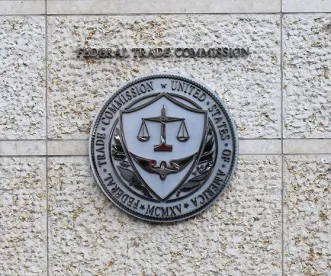Employment attorneys and employers are well aware that noncompete and nonsolicitation agreements have been under continued scrutiny by states across the country. While the laws vary from state to state, generally, restrictive covenant agreements have become more difficult for employers to enforce when an employee violates their agreements and “thumbs their nose” at threatened enforcement. Most states look at noncompete agreements with an increasingly skeptical perspective while tending to accept reasonably drawn limitations that prohibit former employees from soliciting clients and/or employees to leave their employers.
Now, the Federal Trade Commission (FTC), one of the government’s primary antitrust enforcement agencies, has issued a ruling that three companies violated the FTC Act through their attempted enforcement of their respective restrictive covenants. In the past, the FTC has stayed out of the oversight of antitrust regulations against employers and noncompete agreements leaving that role to the state attorney generals and state courts.
In the decision announced January 4, 2023, the FTC ordered that three companies, Prudential Security, O-I Glass Inc., and Ardagh Group SA, strike allegedly illegal noncompete agreements finding that “…the use of noncompete agreements by these firms constituted an unfair method of competition and violated Section 5 of the FTC Act.” This move comes as labor unions continue to try and persuade the FTC and challenge the courts to prohibit noncompete agreements citing reduced wages and decreased worker mobility as anticompetitive.
The FTC order requires Prudential Security, its affiliate Prudential Command, and their respective owners to terminate agreements with their securities guards that contained restrictions against working for competing entities within a 100-mile radius of their job site for two years.
The FTC order prohibits O-I Glass and Ardagh from imposing or enforcing noncompete agreements on their respective workers. In all, over 3,200 employees from the three companies were covered by noncompete agreements. Citing increased competition in the respective industries and increased restrictions on employee movement, the FTC stated that finding skilled employees by new employers entering the market necessitated these findings to allow greater employee movement and reduce unfair competition.
In a related move, on Thursday January 5, 2023, the FTC announced a proposed ban on noncompete clauses (see our blog post for details on the proposed ban).
According to the U.S. Treasury Department, about one in five Americans is subject to a noncompete agreement, and its March 2022 report estimated that a lack of competition for labor and restrictive covenant agreements “likely reduces” wages by as much as 20%.
Continued developments will be monitored closely by employers and their attorneys as they try to navigate this increasingly “unfriendly” territory of enforcing restrictive covenant agreements.





 />i
/>i

